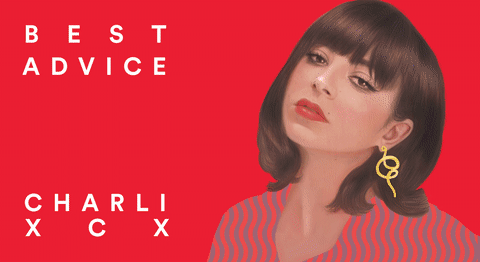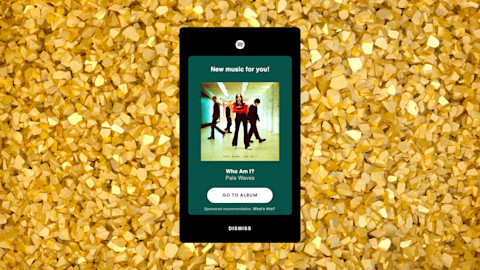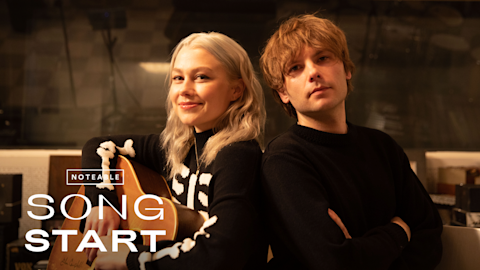“I see the music as a trip,” he says. “I’m taking the listener from one place to another.”
The great thing about music is that there’s really no right or wrong way to do it. Yes, your artist photo shouldn’t be blurry, your mixes should be clear and uncluttered, and you shouldn’t play with your back to the audience (unless you’re Miles Davis), but those things are just basic guidelines, and there’s an almost limitless spectrum of possibilities available to you.
Few electronic musicians have understood the possibility of radical free expression better than DJ Koze. The producer/DJ began his career in the ‘90s German hip-hop scene, playing gigs and providing beats for his group Fischmob. By most measures, Koze was very successful—from 1999 to 2004, the influential German magazine SPEX voted him DJ of the Year—but his vision was quickly evolving, and he soon left the strictures of hip-hop behind, first as part of the duo Adolf Noise, with Marc Nesium, and later with the 2005 Kompakt album Kosi Comes Around.
Since then, Koze has created music full of blind alleys and trapdoors—disco ballads interjected with serating synth sounds, airy atmospherics wrapped in playful vocal passages, and crackling minimal techno grooves that dissolve into puddles of hissing beeps and sonic glurps. On paper, his brand of electronic psychedelia sounds daunting—more a chore than a pleasure—but his latest album, Knock Knock, is among the most accessible and satisfying listens of 2018. Most of all, Knock Knock feels warms and personal, a testament to one man’s translation of the world through music.
“I always tell new artists that they need to be unique,” Koze says over the phone. “You have to know who you are, and what you want to say, and not compromise that.”
And Koze has never compromised. His music reflects his own journey. Knock Knock lead-off track “Club der Ewigkeiten” (roughly translated: “club of eternity”) begins with a tangle of strings that is punctured by a disorienting vocal squeal—the cacophony and violence of birth—but it soon gives way to a warm melody, and from there the album dips into house, hip-hop, techno, ambient, and all points in between.
“I see the music as a trip,” he says. “I’m taking the listener from one place to another. For this album, I created the first and the last song, and I knew that those were going to be the first and the last songs, and, from there, I just had to fill out the middle—to create a caption for those two pieces.”
With music so strange and beautiful, it’s inevitable that listeners will wonder where these sounds and ideas originate—the source of inspiration for such a singular experience. “It’s about listening and absorbing,” he admits. “I’ll hear a melody or hear a snippet of music from someone else, and it will take me into their world. Sometimes it’s the way a drum sounds, or the pitch of something. And I’ll feel certain emotions when I hear things, and then I’ll try to recreate that feeling through my own music. But it’s not just about sampling, and you can’t just strip the soul out of a track and claim it, of course. You have to make it your own.”
From there, Koze focuses on ensuring that the album sounds cohesive. There’s a lot of strange and unexpected things going on here, but it all feels of a piece. “I love psychedelic music, but the best psychedelic music isn’t just random noises,” he says. “It has its own internal logic. It creates a world, and you bring the listener into this world, and there are rules and structures for this so that things aren’t just coming from nowhere and they make sense within the context of everything else.”
It can be a long, arduous journey for the producer, and the process is not always linear. Some things work and some things don’t, which is important to understand when creating your own music. “I have to let go,” he says. “It’s weird—you want to let go, but you also want to stay focused. You want to tap into this thing that triggers your emotions, and you want to be very focused, but your mind also needs to be clear. Brian Eno talks about this as a way to trigger creativity. And this doesn’t always happen. Sometimes, you have to set it down and return to it.”
It’s good advice for any musician. It’s not going to turn you into a DJ Koze, but maybe that’s the point.
—Sam Chennault
Popular Stories
video
How Julia Wolf Made It




